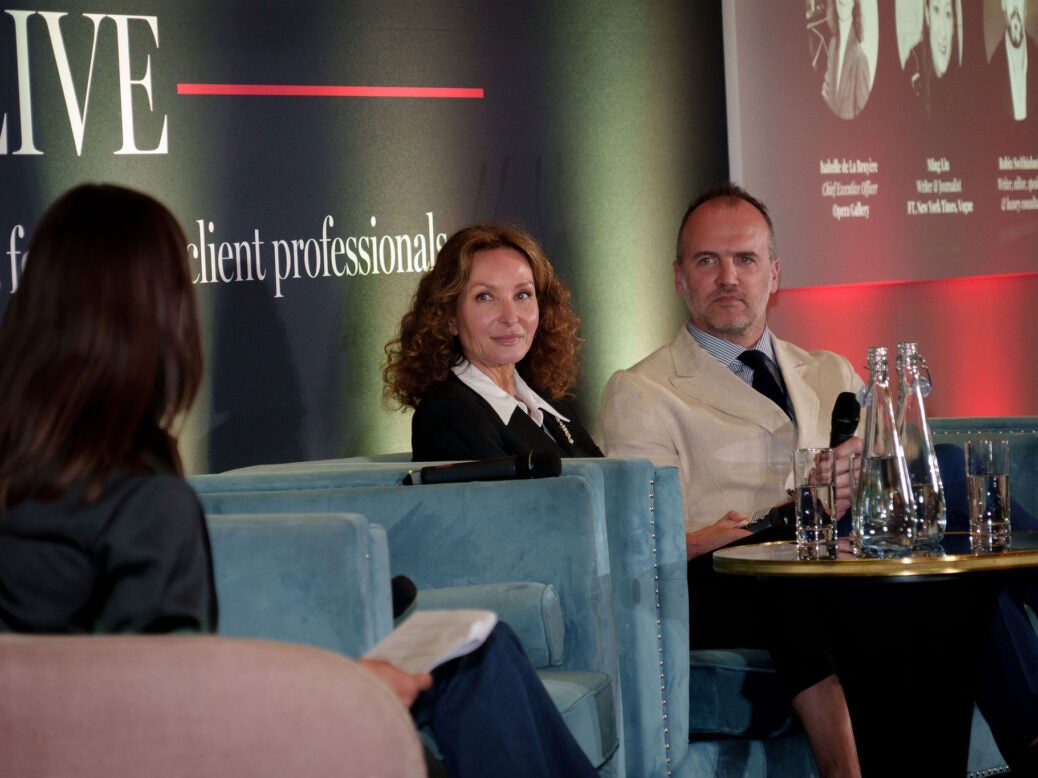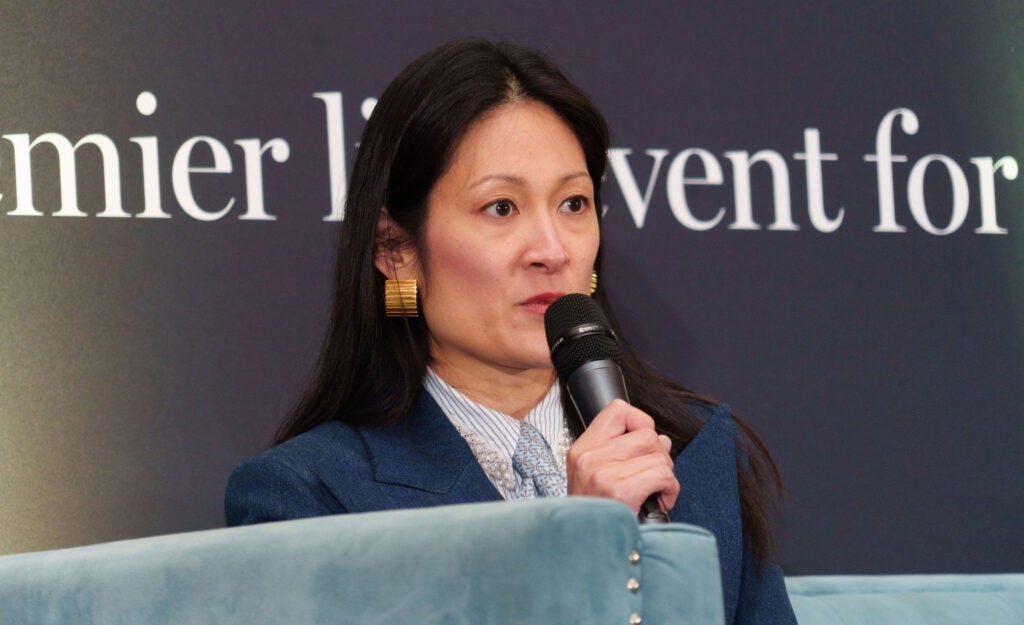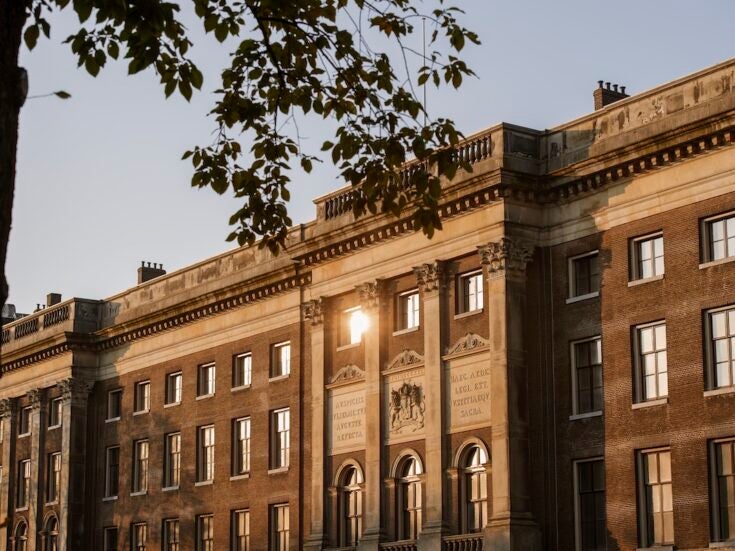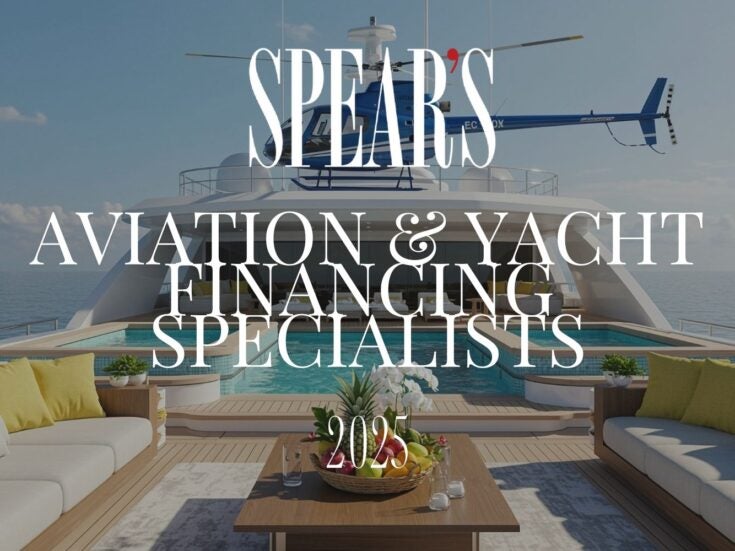
Luxury goods brands face headwinds caused by the global political and economic climate that may narrow the sector’s consumer base, according to a panel of experts gathered at Spear’s 500 Live 2025 on 7 May.
‘Last year was uncertain and now there’s even more uncertainty: the only thing that’s certain is uncertainty,’ said Ming Liu, watch and jewellery journalist who contributes to titles including the New York Times, HTSI and Robb Report Monaco. ‘Geopolitical tensions and trade wars have made people really conscious of their purchases.’
[See also: Rise of ‘alternative banking platforms’ poses challenge for established incumbents]
Robin Swithinbank, a Financial Times contributor and host of The Luxury Society Podcast, said casual buyers were in decline. ‘There’s an increasingly clear distinction between those luxury buyers buying out of their wealth and those buying out of their income,’ he noted. ‘At the moment, the latter category is declining.’
Isabelle de La Bruyère, chief executive of the Opera Gallery international network of art galleries, agreed. ‘Buyers with inherited wealth think in terms of legacy and buy things they’re really into and theirs won’t be an impulse-buy,’ she said. ‘Whereas, income and bonus-buyers buy things much more on instinct. They also have a very different budget and will spend when they have, but at the moment they’re much more cautious.’

The luxury sector experts were speaking during a session entitled ‘The evolution of luxury and changing expectations across generations’, which was presented in association with yacht broker Maddox.
Despite contemporary challenges, said de La Bruyère, over the past 25 years, the luxury market had grown to become far more international and cross-generational, citing a recent Sotheby’s auction in Saudi Arabia where half the buyers were under 30. ‘When I started in 1998 at Christie’s, we had 1,500 buyers globally who could spend $1 million or more on a work of art,’ she said. ‘The market was Western-centric, and the hubs were New York and London. Now the market has opened up, clientele are younger and there are so many more buyers that can spend more than a million, whether they’re in Lagos, Mexico City, São Paulo, Dubai or Hong Kong.’
[See also: America’s pain is self-inflicted]
‘You can’t hoodwink the younger generation’
The panel noted that buyers are more knowledgeable than ever before and that this posed brands with a number of fresh challenges, particularly around value and sustainability.
‘The luxury industry has a lot of macro-economic problems at the moment that are not its fault, but it has also shot itself in the foot by increasing prices at an extraordinary rate,’ said Swithinbank. ‘A lot of younger consumers now feel they’re priced out of the market. They have less disposable income than many previous generations and so introducing products that have genuine, authentic value is becoming really important. If you can’t communicate that, you will lose the next generation.’
[See also: ‘Mr Super Prime’: UHNW buyers have a choice – East or West]
Liu said sustainability would continue to be a key consideration in the buying decisions of younger luxury consumers. ‘You can’t hoodwink the younger generation,’ she said. ‘They’re super informed and they’re definitely interested in eco-conscious businesses and social impact, but equally they can suss out if it’s virtue-signalling. It’s important that brands offer an authentic narrative.’
However, according to Swithinbank, there are signs of “values fatigue” creeping into the market. ‘Luxury brands are pulling back on developing products that are overtly sustainable and pulling back further still on communication around those products,’ he said. “It’s expensive to develop and communicate these products, and in the current political and economic climate, it feels as if the sustainability question is lower on the agenda now than it was in the immediate aftermath of the pandemic, when brands were obsessed with their purpose and values.’
The luxury lookout
The panel listed Latin America, the Middle East, Japan and China as among the territories where luxury brands would enjoy the most growth in the near future, as new consumers, brands and artists emerge and factors such as currency fluctuations motivate a global, highly mobile luxury clientele to travel in search of new ideas – and bargains.
While the mood may be more international today, London was still a ‘world-class city full of highly creative, ambitious and entrepreneurial people,’ according to Swithinbank. de La Bruyère concluded that in the luxury industry, ‘we are moving towards experience-led engagement, particularly with the younger generation, and seeing a merging of lifestyle and luxury, arts and experience.’
Watch the full panel session here:
Spear’s 500 Live is the premier live event for private client professionals and leading figures from the private wealth and family office ecosystem. The 2025 edition took place at the Savoy in London and was attended by more than 500 high-calibre delegates.
Spear’s 500 Live was presented in association with our partners, Blacklane, the Charities Aid Foundation, CMB Monaco, HCA Healthcare UK, Henley & Partners, Interpolitan, Invest Barbados, Maddox, Mast Capital, Sentinel Resource Group and Stewardship.
For commercial enquiries concerning Spear’s events, contact shady.elkholy@spearswms.com.






